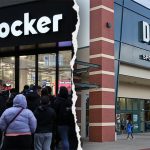Granted, the figures arent developed using conclusive numbers or inside information, but just for arguments sake lets assume that the vast majority of wholesale sales to Gart and The Sports Authority are commissionable sales going into the pockets of independent reps.
Now lets assume that once the merger of the two sporting goods retailers goes through as planned by third quarter, most companies calling on the new, consolidated TSA based in Denver will need to have a national account rep managing the business.
The combined entity announced last week is expected to generate $2.5 billion in total retail sales. Assuming an average 45% margin on goods and 7% in private label sales, we would expect about $1.3 billion in wholesale dollars to be shipped in 2003. Conservatively, we figure 25% of the total business is currently handled by national account reps or other direct company sales. That leaves $975 million in sales generated by independent reps working on straight commission.
Consider an average commission rate of around 5% and the wholesale shipments account for almost $50 million in commissions that go to those reps.
Maybe half of all sales stay with the current structure – and we doubt that many will – and we end up with at least $25 million in commissions sucked out of the current independent rep base. A deadly blow for many agencies.
Florida had been the Holy Grail for commissioned reps for the last decade or so, with TSA, Champs and others providing meteoric growth and hundreds of rooftops selling sporting goods, footwear and apparel. Not anymore.
Reps started losing business as Sports & Recreation closed its doors, Belk consolidated its operations in Charlotte and TSA instituted its Bid n Blend program that resulted in a decade of business evaporating overnight due to lowball direct competitors. Champs may well be next as former CEO Rick Mina makes his way to Foot Lockers New York City headquarters to run the parent companys U.S. operations.
While TSA has been called on by national account reps for many companies, Gart has been widely treated as a regional player, called on by local reps.
The new consolidated retail giant will require far more focus and corporate attention than either of the former separate entities, requiring a much higher level of management and service.
While the question of the impact of this deal on the Denver reps is still up in the air, the impact on the Florida reps – and the balance of the Southeast business they support – is very clear.
On the corporate rep side, Nike has a regional office in south Florida with a almost a dozen people focused on the TSA business. Reebok has the same presence, but less personnel. New Balance, the current TSAs largest footwear vendor, moved a regional sales manager to Ft. Lauderdale in recent months to start a straight commission agency calling on just TSA. He has hired at least three people in the last six months to call on the account.
The deal announced last week merging the two retailers will be a positive move for Gart and will enable TSA to survive amid growing competition from Dicks and Academy. But the move creating the first real national sporting goods chain will cause a number of good people to lose jobs in Florida and Denver as the new entity consolidates operations.
It is rumored that TSA employees were asked as early as Thursday to declare their willingness to move to Denver or take themselves out of contention for a job with the new company. Interviews start next week.
Gart Sports and The Sport Authority announced on Wednesday that the boards of both companies had agreed to a “merger of equals”, with each TSA shareholder receiving 0.37 shares of GRTS stock. Current shareholders of each company would receive roughly 50% of the new entitys stock. Leonard Green & Partners, L.P., which beneficially owns about 25% of the outstanding common GRTS stock, has agreed to vote in favor of the transaction.
The combined entity will be named The Sports Authority, Inc., headquartered in Englewood, CO, and will apply for listing on the NYSE under the ticker symbol TSA. The new company has pro forma 2002 sales of $2.5 Billion and 385 stores in 45 states.
The merger is expected to close in Q3, but company officials intimated in a call Wednesday morning with analysts that it could be done “by June”.
The new company will clearly leverage its newfound strength in building on private label programs – expected to reach 10% – 15% of total sales – as well as building on the strengths of each organization. Vendors will also undoubtedly gain or lose business based on new merchant preferences and store direction – and margins will certainly be tighter.
Current TSA CEO and Chairman Marty Hanaka, will serve be chairman of the combined company, and Doug Morton, current president and CEO of Gart Sports, will become vice chairman and CEO of the combined company. Elliott Kerbis, president and chief merchandising officer of Sports Authority, will retain his role in the combined company. Tom Hendrickson, CFO of Gart Sports, will become chief administrative officer and CFO of the combined company. George Mihalko will be leaving the organization.
Mr. Hanaka stated that having the company in Denver signals that the new entity will be run by Doug Morton and will retain the culture of the current Gart organization. “We will have one CEO and one culture”, said Hanaka.
Mr. Morton indicated that the company will be fully integrated as it evaluates and employs the best practices” of each company. Many systems are similar and will smooth the transition.
The plan is to accelerate the store remodel program at existing TSA stores. One key question will be TSAs recent move to full-service footwear departments and how stores currently scheduled for remodel will proceed. Gart just finished conversion to sell-service.
Nike has gained share at TSA as more stores moved to the full-service format and NKE granted TSA access to more marquee product. New Balance has been negatively impacted by the move away from self-service. It will be interesting to see which format survives and which brands thrive in the future.
On the apparel front, the combined entity will benefit from an expanded private label business courtesy of TSAs expertise and brands it owns in the area. TSA is also seen as a stronger player in the womens apparel business, attributed mostly to its strong senior buyer.
Brands with an established presence at TSA but not Gart — or vice-versa — face an uncertain future depending on the buying personnel retained.
The combined company will now have stores in every NFL market. Said Morton, “we will always win the Super Bowl”. Mr. Hanaka pointed out that the combined company will have reduced seasonal weather risk as well.
All boats seemed to rise with the deal, with GRTS shares jumping 42% for the week to close at $18.40 on Friday. TSA was up 25.5% to $6.89. DKS gained 13.8% and BGFV shares increased 10.5% for the week.
The 50/50 deal looks pretty fair at this point with Garts market cap at $218.3 million and The Sports Authority valued at $227.1 million.
>>> With the deal expected to take nearly six months to complete, it should cause major disruptions to sales and merchandising organizations in both locations (and in FL in particular)…
>>> This will put tremendous pressure on vendors margins, especially those in the equipment sector…
>>> And then there is the human cost of the employees eliminated in this move, which is where the biggest savings is realized
In a related story, Gart Sports reported on Monday that it expects to meet its prior EPS guidance for Q4 2002 of $1.03 and full year 2002 of $1.86.
Total sales for the 13 weeks ended February 1, 2003, were $316.8 million compared with $316.0 million for the fourth quarter of fiscal 2001. Comparable store sales for the fourth quarter declined 3.2%.
Total sales for full year 2002 rose 12.3% to $1.05 billion. Comparable store sales for the year were flat.















